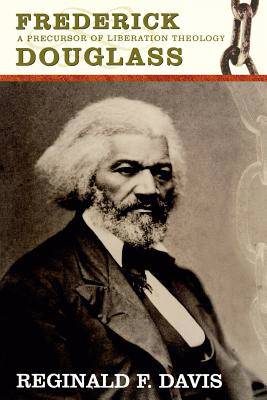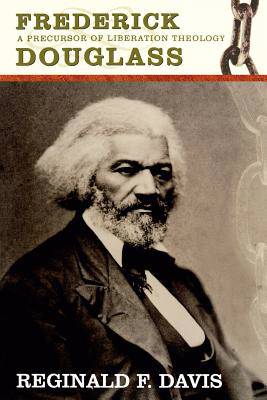
Je cadeautjes zeker op tijd in huis hebben voor de feestdagen? Kom langs in onze winkels en vind het perfecte geschenk!
- Afhalen na 1 uur in een winkel met voorraad
- Gratis thuislevering in België vanaf € 30
- Ruim aanbod met 7 miljoen producten
Je cadeautjes zeker op tijd in huis hebben voor de feestdagen? Kom langs in onze winkels en vind het perfecte geschenk!
- Afhalen na 1 uur in een winkel met voorraad
- Gratis thuislevering in België vanaf € 30
- Ruim aanbod met 7 miljoen producten
Zoeken
Omschrijving
Frederick Douglass: A Precursor of Liberation Theology deals with the evolution of Frederick Douglass's philosophical and theological development. This book is another paradigm that expands the debate and places Douglass's thought in a more appropriate context, namely anticipating liberation theology. Since no consensus exists about Douglass's philosophical and theological development, Reginald F. Davis attempts to settle a dispute in Douglass studies that revolves around his religious odyssey and in particular the character and cause of his philosophical and theological development. The dispute among scholars is concerned with where to locate Douglass on the theological spectrum. Some scholars identify Douglass as having moved away from traditional forms of Christian millennialism, which elevates not the human agent but an omnipotent God who apocalyptically intervenes in human affairs and history. Still others interpret Douglass as having moved outside the circle of theism to enlightenment humanism. There is also an unsettled debate about the cause of Douglass's theological shift. One view attributes Douglass's shift to a psychological factor of rejection by White Churchmen over his support for radical policies like abolitionism. Another perspective attributes Douglass's shift to enlightenment principles of natural law and rationality. Davis utilizes selected categories from liberation theology to provide a more accurate exegesis of Douglass's study to encourage a new angle of interpretation of Douglass's philosophical and theological evolution.
Specificaties
Betrokkenen
- Auteur(s):
- Uitgeverij:
Inhoud
- Aantal bladzijden:
- 152
- Taal:
- Engels
- Reeks:
Eigenschappen
- Productcode (EAN):
- 9780865549258
- Verschijningsdatum:
- 28/02/2005
- Uitvoering:
- Paperback
- Formaat:
- Trade paperback (VS)
- Afmetingen:
- 150 mm x 195 mm
- Gewicht:
- 226 g

Alleen bij Standaard Boekhandel
+ 58 punten op je klantenkaart van Standaard Boekhandel
Beoordelingen
We publiceren alleen reviews die voldoen aan de voorwaarden voor reviews. Bekijk onze voorwaarden voor reviews.









